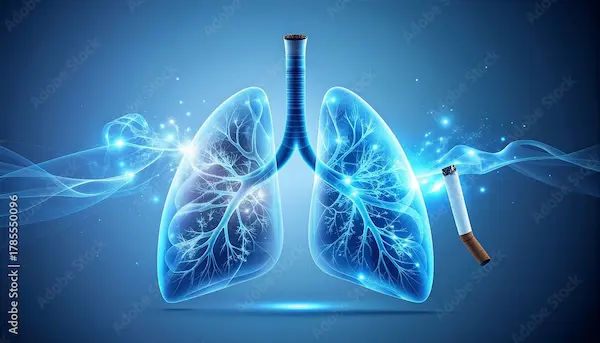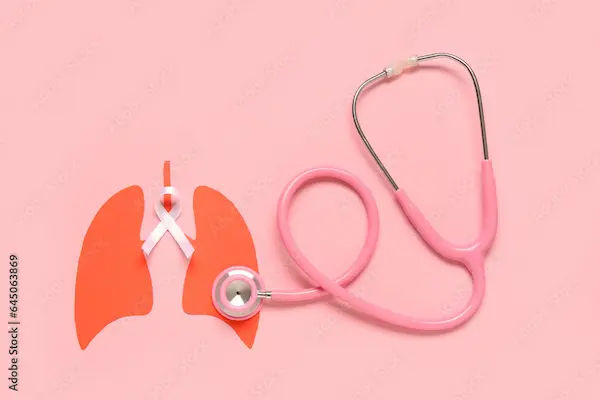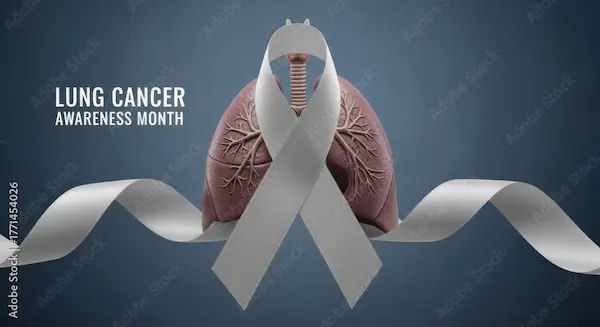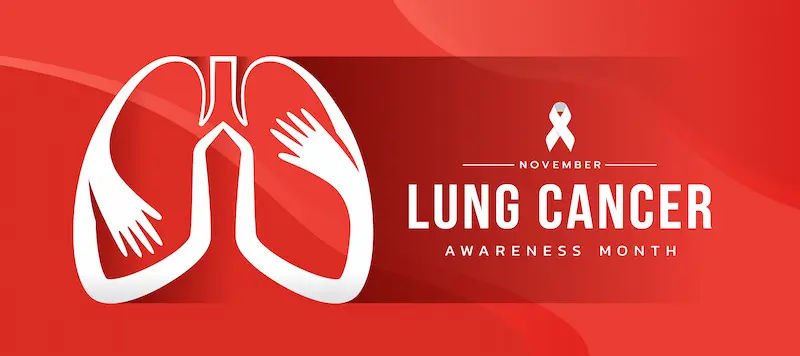Signs Of Early And Signs Lung Cancer
Learn the early signs of lung cancer and what symptoms to watch for. Discover persistent coughs, shortness of breath, chest pain, and other warning signals to seek timely medical care.


Introduction
Lung cancer is often called a "silent" disease because its earliest stages may not produce any noticeable symptoms. Many of the initial signs can be easily mistaken for common, less serious conditions like a lingering cold or seasonal allergies. This is why understanding the subtle, early warnings is so critical. When lung cancer is detected at an early, localised stage, the treatment options are broader and the chances of successful outcomes are significantly higher. This article will guide you through the key early and advanced signs of lung cancer, helping you distinguish between everyday ailments and symptoms that warrant a doctor's attention. We'll cover everything from a persistent cough to more systemic changes in your body, empowering you with the knowledge to take proactive steps for your health.
Understanding the Challenge: Why Early Lung Cancer is Hard to Spot
Our lungs have very few nerve endings. This means a small tumour can grow without causing pain or discomfort that would immediately alert you. Often, symptoms only appear once the tumour has grown large enough to interfere with breathing, press on nearby nerves, or begin to spread. This is why awareness is our most powerful tool.
The Critical Difference: Early-Stage vs. Late-Stage Symptoms
It's important to clarify what "early" means in this context. Early-stage symptoms are often the first signs that something is wrong, but they may still indicate a cancer that has grown or spread locally. Truly Stage 1 lung cancer might have no symptoms at all and is frequently found incidentally during a chest X-ray for another reason. The symptoms we discuss as "early" are your body's first audible alarms.
Consult an Oncologist for the best advice
The Subtle Whisper: Key Early Signs of Lung Cancer
Paying attention to changes in your respiratory health is the first line of defense. Here are the most common early warning signs.
A Cough That Changes or Won't Quit
A cough associated with a cold or respiratory infection will go away in a week or two. A cough that persists for more than three weeks is a primary early symptom of lung cancer. Be especially concerned if your chronic "smoker's cough" becomes deeper, hoarser, or you start coughing up blood or rust-colored phlegm.
Shortness of Breath: More Than Just Being Out of Shape
Feeling short of breath when walking or doing tasks that were once easy can be a sign that a lung tumour is blocking an airway. This obstruction prevents the full exchange of air, leading to breathlessness (dyspnoea). Don't automatically attribute this to just being out of shape or gaining weight.
Blood in Your Phlegm (Hemoptysis): A Red Flag
Coughing up even a small amount of blood should never be ignored. Known as hemoptysis, this is a significant red flag for several serious conditions, including lung cancer. The blood may appear bright red or as rust-colored streaks in your phlegm.
Chest, Back, or Shoulder Pain That's Unexplained
If a tumour is pressing against nerves or invading the lining of the lung (pleura) or ribs, it can cause pain. This chest pain from lung cancer is often dull, aching, and persistent. It may be worse with deep breathing, coughing, or laughing. Pain can also be felt in the back or shoulder if specific nerves are affected.
Beyond the Lungs: Systemic and General Early Warning Signs
Lung cancer can cause body-wide symptoms, which are crucial to recognise.
Unexplained Weight Loss and Loss of Appetite
Losing 10 pounds or more without trying is a common sign of many cancers. Cancer cells consume a lot of the body's energy, and substances released by the cancer can alter your metabolism, leading to unexplained weight loss and a decreased appetite.
Persistent Fatigue and Feeling Unwell
This isn't ordinary tiredness. Cancer-related fatigue is a profound exhaustion that doesn't get better with rest. It's caused by the body diverting energy to fight the disease, along with chemical changes the cancer creates. A general feeling of being unwell or weak is also common.
When Cancer Spreads: Signs of Advanced Lung Cancer
When lung cancer metastasizes (spreads), it can cause symptoms in other parts of the body.
Bone Pain and Neurological Symptoms
If cancer spreads to the bones, it can cause severe pain, often in the back, hips, or ribs. If it spreads to the brain, it may cause headaches, dizziness, seizures, balance issues, or numbness in an arm or leg.
Jaundice and Swelling (If Spread to Liver or Lymph Nodes)
Metastasis to the liver can cause jaundice (yellowing of the skin and eyes). Swelling of the face, neck, arms, or upper chest can occur if the tumour presses on the superior vena cava, a large vein.
Paraneoplastic Syndromes: The Body's Indirect Reaction to Cancer
Sometimes, lung cancer cells produce hormone-like substances that cause problems in distant organs, even if the cancer hasn't spread there. These are called paraneoplastic syndromes. Symptoms can include clubbing of the fingers, high calcium levels, blood clots, or hormonal imbalances.
Are You at Risk? Knowing Your Personal Risk Profile
While smoking is the leading risk factor, it's not the only one. Other risks include exposure to radon gas, asbestos, secondhand smoke, air pollution, and a family history of lung cancer. Importantly, lung cancer in non-smokers is a reality, and the signs of lung cancer in women who are non-smokers are often linked to genetic mutations like EGFR.
Your Action Plan: When to See a Doctor
If you experience any of the symptoms mentioned, especially if they are persistent or worsening, do not delay. If a persistent cough or shortness of breath lasts beyond two weeks, it is crucial to consult a doctor online with Apollo24|7 for further evaluation. They can assess your symptoms and risk factors and recommend next steps, which may include imaging tests like a low-dose CT scan, which is the standard for early detection in high-risk individuals.
Conclusion
Recognising the early signs of lung cancer can feel daunting, but knowledge is empowering. Your body often sends signals; the key is learning to listen. While this information is vital for awareness, it is not a substitute for professional medical advice. If you have any concerns based on what you've read, the most important step you can take is to speak with a healthcare provider. They can help you understand your personal risk and determine if further investigation is needed. Taking action early provides the best opportunity for effective treatment and a positive outcome. If your condition does not improve after trying simple remedies, book a physical visit to a doctor with Apollo24|7 for a comprehensive check-up.
Consult an Oncologist for the best advice
Consult an Oncologist for the best advice

Dr. Sanchayan Mandal
Medical Oncologist
17 Years • MBBS, DNB Raditherapy, DrNB Medical Oncology
East Midnapore
VIVEKANANDA SEBA SADAN, East Midnapore

Dr Gowshikk Rajkumar
Oncologist
10 Years • MBBS, DMRT, DNB in Radiation oncology
Bengaluru
Apollo Clinic, JP nagar, Bengaluru

Dr.sanchayan Mandal
Medical Oncologist
17 Years • MBBS, DrNB( MEDICAL ONCOLOGY), DNB (RADIOTHERAPY),ECMO. PDCR. ASCO
Kolkata
Dr. Sanchayan Mandal Oncology Clinic, Kolkata

Dr. Gopal Kumar
Head, Neck and Thyroid Cancer Surgeon
15 Years • MBBS, MS , FARHNS ( Seoul, South Korea ), FGOLF ( MSKCC, New York )
Delhi
Apollo Hospitals Indraprastha, Delhi
(25+ Patients)
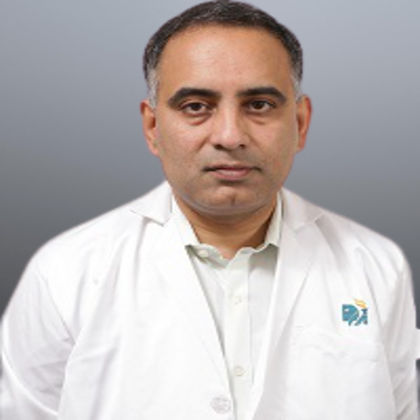
Dr. Raja T
Oncologist
20 Years • MBBS; MD; DM
Chennai
Apollo Hospitals Greams Road, Chennai
(200+ Patients)
Consult an Oncologist for the best advice

Dr. Sanchayan Mandal
Medical Oncologist
17 Years • MBBS, DNB Raditherapy, DrNB Medical Oncology
East Midnapore
VIVEKANANDA SEBA SADAN, East Midnapore

Dr Gowshikk Rajkumar
Oncologist
10 Years • MBBS, DMRT, DNB in Radiation oncology
Bengaluru
Apollo Clinic, JP nagar, Bengaluru

Dr.sanchayan Mandal
Medical Oncologist
17 Years • MBBS, DrNB( MEDICAL ONCOLOGY), DNB (RADIOTHERAPY),ECMO. PDCR. ASCO
Kolkata
Dr. Sanchayan Mandal Oncology Clinic, Kolkata

Dr. Gopal Kumar
Head, Neck and Thyroid Cancer Surgeon
15 Years • MBBS, MS , FARHNS ( Seoul, South Korea ), FGOLF ( MSKCC, New York )
Delhi
Apollo Hospitals Indraprastha, Delhi
(25+ Patients)

Dr. Raja T
Oncologist
20 Years • MBBS; MD; DM
Chennai
Apollo Hospitals Greams Road, Chennai
(200+ Patients)
More articles from Lung Cancer
Frequently Asked Questions
1. Can you have lung cancer with no symptoms at all?
Yes, it is possible, especially in the very early stages. Many early-stage lung cancers are found accidentally when a patient gets a chest X-ray or CT scan for an unrelated issue, like a heart check or after an injury.
2. What are the common signs of lung cancer in non-smokers?
The symptoms are largely the same: persistent cough, shortness of breath, chest pain, and fatigue. However, non-smokers who develop lung cancer are more likely to have specific genetic mutations (like EGFR or ALK), and the cancer is more common in women and younger individuals.
3. How is lung cancer typically diagnosed?
If symptoms or risk factors suggest lung cancer, a doctor will usually start with imaging tests like a chest X-ray or, more effectively, a low-dose CT scan. If a suspicious spot (nodule) is found, a biopsy (tissue sample) is needed for a definitive diagnosis. Apollo24|7 offers convenient home collection for tests like basic blood work that can support a diagnosis, but imaging and biopsy are hospital procedures.
4. Is a hoarse voice a sign of lung cancer?
It can be. A tumour pressing on the nerve that controls the vocal cords (the laryngeal nerve) can cause hoarseness. While hoarseness is more commonly caused by a cold or laryngitis, if it persists for more than a few weeks, it should be evaluated by a doctor.
5. What does shoulder pain from lung cancer feel like?
Shoulder pain from lung cancer is often a persistent, deep ache that doesn't go away with rest or typical pain relievers. It may be caused by a tumour pressing on nerves at the top of the lung (a pancoast tumour) and might be accompanied by pain that radiates down the arm.
